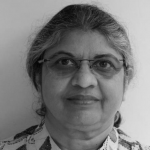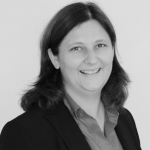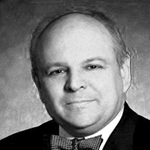
We are extremely excited to welcome five new executive board members to MCII. We are looking forward to working with each of them on the new tasks ahead in making climate and disaster risk financing and insurance solutions accessible for countries and people at risk from the negative effects of climate change.
The new MCII Executive Board consists of Swenja Surminski (Chair), Christoph Bals (Vice-Chair), Armin Haas (Treasurer), Smita Premchander (Indian Institute of Management Ahmedabad), Laura Schaefer (Germanwatch), Zita Sebesvari (UNU-EHS), Benjamin A. Antwi-Boasiako (Allianz SE Reinsurance), Thomas Loster, and Paul Kovacs (ICLR). Please see below to hear a bit more about each of them.

Dr. Swenja Surminski (Chair)
Swenja is Deputy Director and Head of Adaptation Research at the Grantham Research Institute on
Climate Change and the Environment, part of the London School of Economics and Political Science
(LSE), overseeing social science research projects on climate adaptation, disaster risk finance with a
focus on insurance, and Loss and Damage of climate change.
Swenja has been a member, close friend and collaborator of MCII for many years, and highly values MCII as an effective and friendly organization, widely trusted and respected across sectors. She is passionate about ex-ante action in the face of climate risk and sees this as a key feature of
sustainable development.
See Swenja’s full bio here.

Christoph Bals (Vice-Chair)
Christoph Bals is the Policy Director of the environmental and development organization Germanwatch. In 1991 he was a founding member of this NGO and has been working for Germanwatch since 1992. Christoph Bals has engaged since then in the politics of climate and development – in close contact with the most vulnerable as well as decision makers from politics and economy. He is chairman of the board of trustees of the “Stiftung Zukunftsfähigkeit” (Foundation for Sustainability).
He has co-initiated many political initiatives in the area of climate and development as well as climate and economics – the European Business Council for Sustainable Energy, e-mission 55 and atmosfair, for example. Bals also shaped a number of target-oriented discourses with constructive players among businesses and unions.
See Christoph’s full bio here.

Armin Haas (Treasurer)
Armin Haas is a senior researcher in the Systemic Risk project of the Institute for Advanced Sustainability Studies, Potsdam (IASS). His research foci concern financing the sustainability transition, modelling the mobility transition, using decision theatres for stakeholder dialogues, and innovative contributions to the management and governance of systemic risks. He holds a Ph.D. in economics from the University of Karlsruhe, Germany.
See Armin’s full bio here.

Dr. Smita Premchander (Founder Board Member, Sampark, Bangalore)
Smita Premchander is a development practitioner and consultant of international repute, and has done extensive work on microfinance, poverty reduction, gender equality and women’s empowerment, elimination of child labour and bonded labour, crafts development, social inclusion, and sustainable development. She trained as an economist and banker and a PhD from UK and Switzerland.
Smita has been a member, and since 2019, the Chairperson of the International Advisory Committee (the Board) of the United Nations University’s Institute of Environment and Human Security (UNU-EHS) in Bonn.
See Smita’s full bio here.

Laura Schaefer (Germanwatch)
Laura Schäfer is a political scientist and a senior advisor for climate risk management with the environmental and development organization Germanwatch. For the last 10 years she has developed strategies, ideas and research in the context of the national and international political and scientific discourse on climate change impacts. Her interest and work is focused on the nexus of resilience building to deal with climate change impacts, climate finance and climate justice. Currently, her policy and think tank work concentrates on developing adequate solutions to address loss and damage in the international climate policy process, a human rights-based approach to climate risk financing as well as on measures to address climate change impacts from slow-onset processes. Laura is also a co-author of the annual Climate Risk Index.
Prior to her work with Germanwatch, Laura was a project manager for the Munich Climate Insurance Initiative (MCII) and a Research Associate at the United Nations University – Institute for Environmental and Human Security. In this role, she managed the MCII collaboration with G7 InsuResilience and contributed to operationalizing the InsuResilience Global Partnership and ensuring the pro-poor focus of the Initiative.
See Laura’s full bio here.

Zita Sebesvari (UNU-EHS)
Dr. Sebesvari is an internationally recognized expert in the fields of social-ecological risk assessments, ecosystem-based disaster risk reduction (Eco-DRR), and ecosystem-based adaptation (EbA). Dr. Sebesvari holds a Ph.D. in Environmental Science from the Carl von Ossietzky University in Oldenburg, Germany. She also holds a M.Sc. in History, and has a great interest in inter- and transdisciplinary research design and project implementation.
At UNU-EHS, Dr. Sebesvari holds the position of Deputy Director and Head of the Environmental Vulnerability and Ecosystem Services (EVES) Section. She serves currently as the chair of the sciencepolicy network Partnership for Environment and Disaster Risk Reduction (PEDRR) and as focal point for the Friends of Ecosystem-based Adaptation (FEBA) network.
See Zita’s full bio here.

Benjamin A. Antwi-Boasiako (Allianz SE Reinsurance)
Benjamin Antwi-Boasiako joined Allianz in 2017 as a Senior Project Manager, championing insurance solutions through partnerships with private and public institutions to protect customers against damage resulting from extreme weather events. In January 2021, Benjamin moved to the underwriting unit of Allianz Reinsurance, assessing and pricing reinsurance risks.
A Chartered Insurer and an Associate of the Chartered Insurance Institute of London, Benjamin obtained his PhD from the Technische Universität Dresden and master’s from Potsdam Universität.
See Benjamin’s full bio here.

Thomas Loster
Thomas R. Loster, a geographer, was a member of the GeoRisks Research Group at Munich Reinsurance Company in Munich for 16 years. The climate change specialist was appointed Chairman of the Munich Re Foundation in July 2004. The Foundation addresses major global challenges including environmental and climate change, population growth, disaster prevention and poverty reduction. Finding insurance solutions for regions and people and at risk is a key concern of the Munich Re Foundation. Thomas Loster retired from Munich Re Foundation in October 2020.
Today he is lecturer at a number of universities including the University of Applied Sciences in Munich and Bonn-Rhein Sieg. Main topics include global sustainable solutions and social protection.
See Thomas’ full bio here.

Paul Kovacs (ICLR)
Paul Kovacs is founder and Executive Director of the Institute for Catastrophic Loss Reduction (ICLR),
Canada’s leading disaster research institute. Paul is Canada’s leading authority on insurance and climate extremes. He was a contributing author to the Intergovernmental Panel on Climate Change for more than twenty years, the world’s leading forum for the study of climate issues. Paul was part of the team that won the Nobel Peace Prize “for their efforts to build up and disseminate greater knowledge about man-made climate change.”
Paul is a passionate champion for insurance and resilience to extreme events. He has worked in private industry, the public sector and academia. Paul is Chair of Ontario’s Advisory Panel on Climate Change, Chair of the Global Alliance of Disaster Research Institutes and a Member of the Board of the Halton Hills Community Energy Corporation. He is a proud husband and father, with a growing collection of bow ties.
See Paul’s full bio here.
We would also like to thank the passing board members for their great work in steering the organization throughout the past 16 years and for helping develop MCII into what it has become to date. An especially big thank-you goes out to Peter Hoeppe for his great leadership as the Chair for so many years. We can only voice our appreciation virtually, for now, but look forward to properly celebrating your achievements in-person next year.

